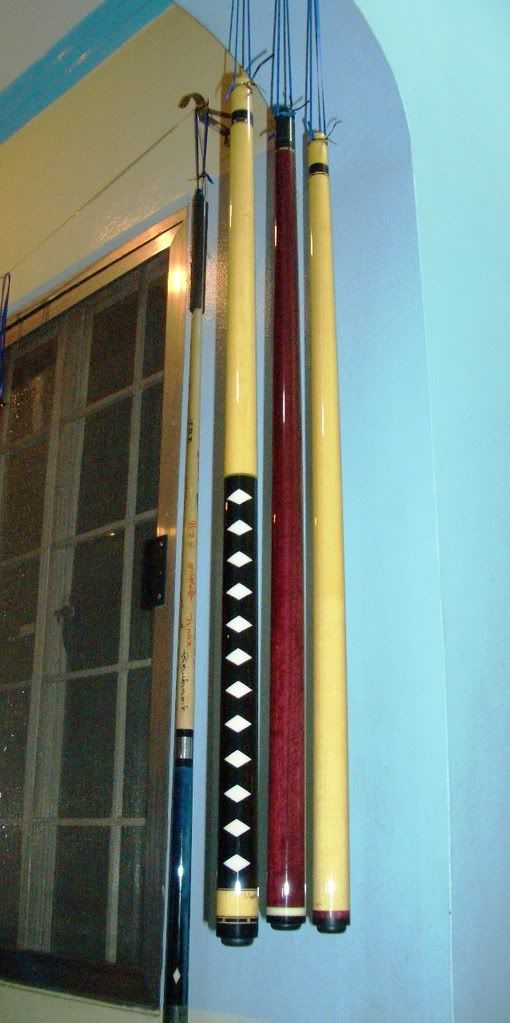J
Jody C
Guest
What is the best way to store your cue to protect from warpage.
Laying flat in a case standing the case up, etc.
Thanks,
Laying flat in a case standing the case up, etc.
Thanks,
Jody C said:What is the best way to store your cue to protect from warpage.
Laying flat in a case standing the case up, etc.
Thanks,
DoubleBye said:I don't think it matters. Just don't store it in the trunk of your car.
John Barton said:But don't come to me if your cues warp
you mean to tell me that if you spend a grand on a cue case, it doesn't come with a letter guarantying any cue against warping

John Barton said:But don't come to me if your cues warp
P.S. Dave, shelves are typically not made to the same standards as pool cues, typically they are made of laminated pressboard with the thinnest coats of varnish that the manufacturer can get away with. You can find many antique dressers that were crafted by the Amish and other individual shops where the wood is straight and everything works perfectly despite being 50-100 years old.
Double-Dave said:Hi John,
Off course my comment was meant as a bit of a joke, but I do stand by it.
I'm sure there's one or two 100 year old shelves that are still straight,
but I have seen hundreds if not thousands that weren't.
My uncle has an 40.000 sq. foot antique store where I worked for two years.
The thing that is making the shelf and your cue warp has nothing to do
with the quality of the wood and whether or not it is laminated. Gravity
pulls on all things, store your cue upright and the worst that can happen
is it will be a little bit shorter (now that was a joke, the shorter part).
gr. Dave
p.s. I agree hanging is probably the best solution of all, but I find it unpractical.
John Barton said:I agree for the most part. Except for the gravity partWood will warp when it's hanging as well. Wood warps because it shrinks and expands due to the moisture content present inside the cells.